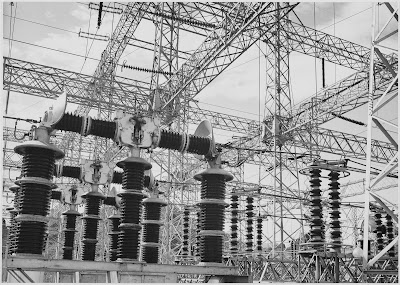On electricity tariff
THE hike in electricity tariff against widespread opposition of Nigerians smacks of gross insensitivity on the part of the authorities to the high level of poverty and suffering of Nigerians. An albatross on Nigeria from which there seems to be no escape for the people would seem to have been made heavier on their necks.
Coming barely a year after the Nigerian Electricity Regulatory Commission (NERC) announced a sharp increase in electricity tariff, the latest hike, even when there is yet no appreciable improvement in power supply, is a slap in the face of Nigerians who have been made victims of oppressive electricity merchants. The Minister of Power, Works and Housing, Babatunde Fashola, had, about a month ago, disclosed that electricity tariffs would be increased, evidently, against the backdrop of low power output.
The House of Representatives, Manufacturers Association of Nigeria (MAN) and the Nigeria Labour Congress (NLC), among others, kicked against the move and asked government to stay action just as Nigerians were also opposed to any increase.
Against this overwhelming public sentiment, NERC, the other day, went ahead to announce a new tariff regime for consumers. The tariffs show that consumers would witness different levels of increase across the country but would no longer pay the monthly fixed charge. But Nigerians have for long protested the imposition of fixed charges and estimated bills for electricity neither supplied nor consumed. The government is only being smart by removing the irritant fixed charge and then putting it back through the new tariff, which makes no difference. As a matter of fact, the illegal fixed charge collected from consumers should be refunded.
According to NERC, under the new tariff regime, residential customer classification (R2) in Abuja, for instance, will no longer pay N702 fixed charge every month but will have their energy tariff increased by N9.60.
Similarly, residential customers in Eko and Ikeja electricity distribution areas will no longer pay the N750 fixed charge but will be getting N10 and N8 increase respectively in their monthly energy charges. What, for instance, is the basis for differential tariff regimes for residential customers in Lagos metropolis.
It is immoral for government to embark on frequent increase in electricity tariff without ensuring a corresponding increase in power supply, especially, in the face of the huge sums expended on the sector in recent times. Nigerians have suffered for too long because of epileptic power supply with industrial production and a host of other economic activities being paralysed too.
The MAN laments regularly that power alone gulps 40 per cent of production cost of its members, who have a combined consumption capacity of 15,000 megawatts (mw), while the maximum generation from the unreliable national grid is less than 5,000mw. If the point is truly appreciated that electricity is critical to economic development, government ought to subsidise electricity for now to grow the economy, create jobs and sustain development before passing the cost on to consumers. The issue of pricing is critical. Considering Nigeria’s low level of economic development, allowing investors to prey on consumers would certainly be counter-productive.
Granted that it is fashionable to privatise public utilities, Nigerians cannot adopt the model used for such in developed industrialised economies. The sector should take cognizance of the social and economic realities in Nigeria. For the umpteenth time, the point must be made that rather than hiking tariff every now and then, government should focus on diversification of power supply sources to reduce the over-dependence on gas or only one source of which there is no assurance of steady supply because of the challenges in the Niger Delta.
The available alternative energy sources include solar, wind, coal and hydro, among others. And government had also expressed interest in biofuels. A well-structured power supply mix is, therefore, needed to stem the endemic electricity problem! Government should help the situation with alternative energy sources.
For instance, whereas the Niger Delta could depend on gas, there is no reason for states like Enugu and Kogi with abundant coal deposit not to use coal as a source of energy. Different parts of the country could utilise available energy resources around them for power supply. Nigeria needs more than 40,000mw of electricity, which is a far cry from what is currently being generated. That Nigerians need power is stating the obvious. The Multi-Year Tariff Order (MYTO) was introduced to take care of different people but the framework seems to have failed.
Consequently, Nigerians or Nigeria-owned companies should take up the challenge of producing power and selling such. Many institutions are already currently doing this, which is gratifying but many more should get into the mix. Therein lies the solution to the power problem.
Asking people to pay more for services hardly rendered is fraudulent.
Source: Guardian Newspaper.


Comments
Post a Comment